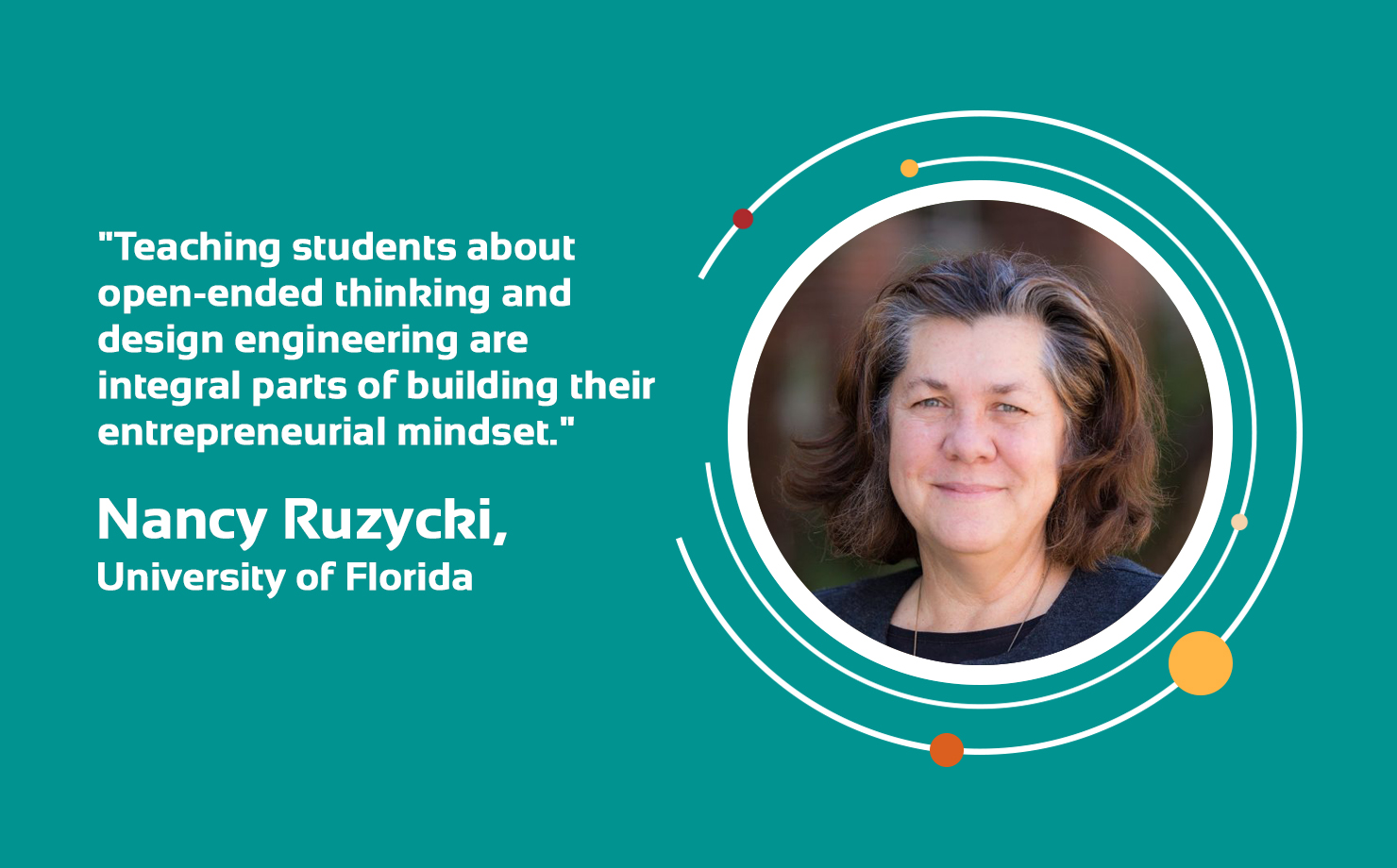
We continue our series highlighting educators within the VentureWell network who are doing good work—faculty members who are catalyzing change in higher education and inspiring students to impact the world through invention. This month’s faculty spotlight is Nancy Ruzycki, Senior Lecturer and Director of Undergraduate Laboratories in the Materials Science and Engineering department at University of Florida. Ruzycki is an active member of the VentureWell community. She received a Faculty Grant to redesign a sophomore biomaterials laboratory course that integrates sustainable design principles as well as innovation and entrepreneurship concepts into curriculum. Students will better understand the role of environmental responsibility in product design as well as gain experience in entrepreneurship by pitching their products to local entrepreneurship mentors.
How did you get interested in teaching entrepreneurship?
I’ve always been interested in entrepreneurship, but in the last few years I have realized that it is something we have to teach to our engineers. We have to provide more opportunities for them to build this skill set and bring into their careers.
What is your favorite thing about teaching?
Watching students grow and develop into thoughtful and creative engineers who make the world a better place.
Where would you like to see the field of entrepreneurship in five years?
I would like to see entrepreneurship taught across the curriculum in STEM fields. We tend to bring in entrepreneurship to engineering disciplines, but not to the hard sciences or biological and Earth sciences. I would like to see curriculum developed where any instructor can integrate aspects of entrepreneurship to any of their classes. For me, I would like to have access to more integrated activities, case studies, and project-based learning to use in the classroom.
What are the challenges you’re tackling in your work today?
I’m tackling a few challenges. Finding the time to integrate entrepreneurship into our standard curriculum is a major one. Another is helping find resources to educate administrators about the importance of building entrepreneurship skills among our students across the curriculum. I’m also teaching students about open-ended thinking and design engineering, which are integral parts to building their entrepreneurial mindset.
What books on entrepreneurship and innovation have you been reading lately?
I read Design Thinking for the Greater Good: Innovation in the Social Sector by Jeanne Liedtka, Randy Salzman, and Daisy Azer. This book looks at governmental models and how design thinking has improved social welfare for the people that governments serve. We know that engineers often enter other professions, and I wanted examples of how their engineering mindset can be transferred into other sectors. Design Thinking for Greater Good helped me bring in more design thinking for positive social impact into my course development.
What’s your most useful classroom activity or assignment?
I teach a design thinking activity that allows students to consider why certain design decisions are made. In this activity, students select common household items such as staplers, lanterns, yard tools, or dog toys. They have to run through a reverse design process on the item and come up with redesign. They also have to determine stakeholders, criteria, properties, and materials to use.
For example, we had some groups look at a staple gun. After the reverse engineering they realized that the gun was not configured for either hand and was difficult for those with limited hand grip strength to operate. One team created a design for universal grip, and another team created a new kind of grip that required less force to operate. This introduced students to the design process, engineering design, and design thinking in a way that did not require them to start from scratch with their own ideas. Students had a template to work with for their teams, as well as graduate student mentors to help guide them in this process.
VentureWell Faculty Grants provide up to $30,000 to help fund and support faculty with innovative ideas to create new or transform existing courses and programs to help students develop novel, STEM-based inventions and gain the necessary entrepreneurial skills needed to bring these ideas to market.